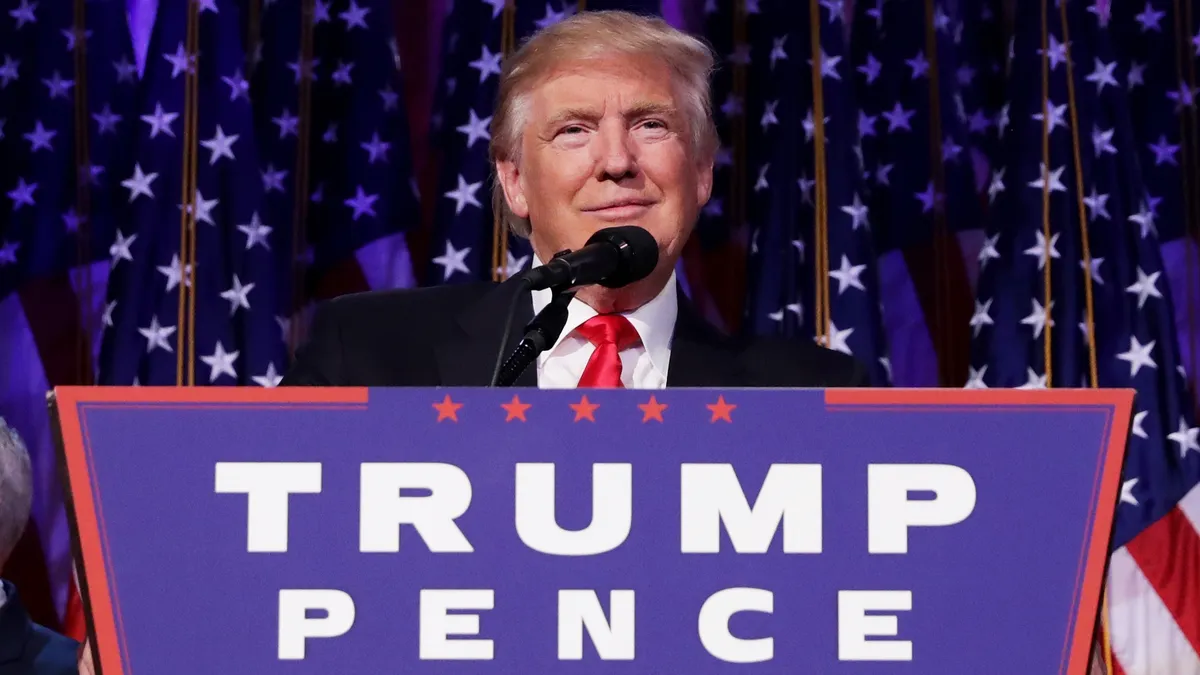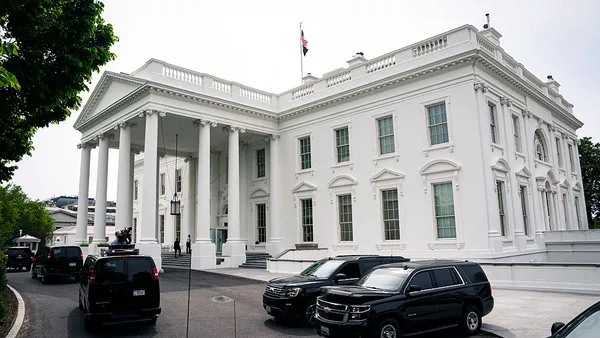Dive Brief:
- President Donald Trump told a group of CEOs on Tuesday that his infrastructure program could exceed $1 trillion, that he will eliminate the "red tape" that could slow down projects, and that his plan would not fund any project that could not get underway within 90 days, according to Reuters.
- U.S. Transportation Secretary Elaine Chao also told the group that she expects the administration to unveil its infrastructure funding bill in May.
- There were rumblings that Trump might delay presenting his full infrastructure plan until 2018 or 2019 so that he could focus attention on other agenda items, but new reports suggest he could keep his promise to make infrastructure one of his first initiatives.
Dive Insight:
When news hit late last month that the massive infrastructure spending bill might still be on the table for this year, some construction industry stocks like Caterpillar and AECOM soared on the news.
Trump has not released any details about what "red tape" he will get rid of. In fact, he hasn't released many specifics about what he has in mind for his infrastructure bill, with the exception of a list of 50 potential high-priority projects that staffers reportedly circulated to the country's governors for input.
Trump's proposed 2018 budget hacks some programs that have provided massive funding for transportation projects, like the Federal Transit Administration's capital investment programs and TIGER grants. Construction industry associations are hoping that his overall infrastructure plan will make up for some, if not all, of those cuts.
The only infrastructure project that has had major movement is the U.S.–Mexico border wall. Hundreds of bidders expressed interest, and the conceptual designs were due Tuesday. U.S. Customs and Border Protection issued a set of general guidelines, but other than some height and foundation requirements, broad material specifications and anti-climbing safeguards, bidders are free to submit whatever design they choose.
Because of the political aspect to the project, bidders are getting pushback from public agencies around the country. San Francisco supervisors have proposed forbidding contractors from working on city projects if they bid on the wall, and other California cities, like Berkeley and Oakland, have proposed similar measures. New York City officials have also suggested penalizing contractors who participate in the project.













